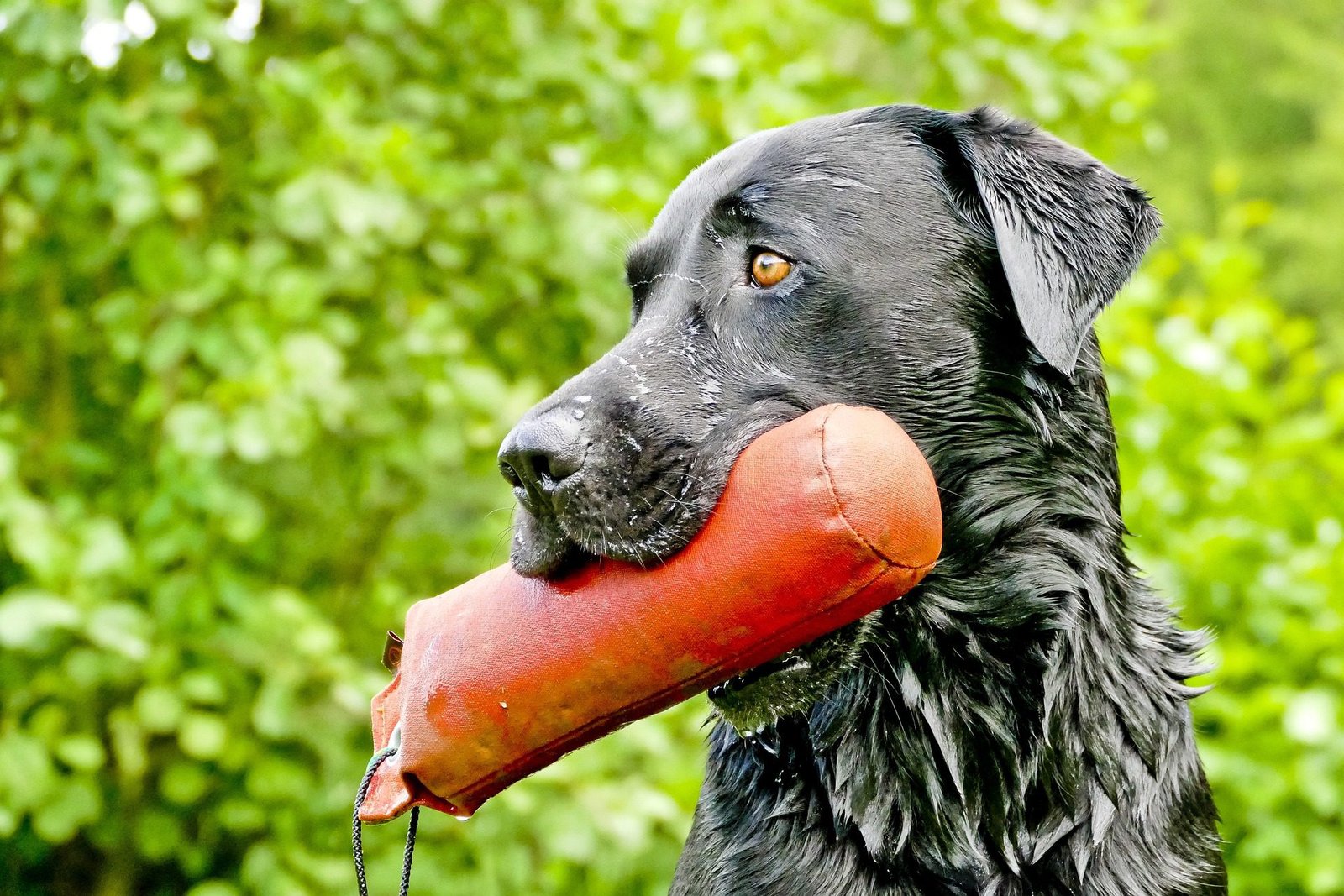Training your dog can be both time and money-consuming. Educating your dog, on the other hand, is just as vital and useful as vaccinating it.
Some people believe that they should be able to teach their dog without assistance, but the truth is that canine professionals currently have up-to-date knowledge that will assist you not only in getting your pet to pay attention to you but also in strengthening the bond between the two.
Most importantly, training will make your dog happy and improve his life. That is why we discuss the advantages of training your dog, the strategies to apply, and how to find a competent trainer.
The first question is, at what age can you begin dog training? The answer is: as soon as your puppy is adopted! Dogs begin learning at an early age and continue to learn throughout their life, therefore no matter how old your dog is, it is preferable to take him to a training school before difficulties arise.
Table of Contents
6 Important Reasons to Train Your Dog
Reason 1: You learn a new language
Dogs do not speak our language, but positive ways can help you interact with them effectively. There will be no misconceptions if you learn to speak with your dog, and negative habits will reduce or eliminate.
Most canine behavior issues, in my view, stem from the owner attempting to interact with the dog in the only manner he knows how: as a person. Unfortunately, dogs do not grasp this language and are annoyed by not understanding what is expected of them.
A good and experienced trainer can teach you simple and effective ways to communicate with your dog. There will be no more yelling or frustration.
Reason 2: It strengthens the emotional link
Our dogs are our best companions, and we adore, idolize, and adore them wholeheartedly. We feel irritated or frustrated when the dog has behavioral issues, but we never stop loving them. We only wish we could talk to them and tell them how we feel.
Positive dog training allows you to speak with your dog in a caring manner. The dog comes to trust his owner, and the owner comes to trust his dog. As a result, the emotional relationship is strengthened.
Reason 3: To aid in the breeding of superior dogs
Taking your dog to training lessons might help him gain confidence and social skills. Training your dog allows him to overcome his phobias and enjoy all of his interactions with other dogs and people.
A dog feels well and protected when he understands what is expected of him because he knows what to do. Furthermore, teaching your dog provides him more freedom since you will have more faith in him.
Reason 4: To avoid behavioral issues
Educating your puppy educates him from a young age about what is right and wrong in the human world, which canines do not understand naturally.
Because we teach him what he should do from the start, the earlier we start training, the less likely the dog will develop unpleasant behaviors.
Reason 5: Make your pet’s life more enjoyable
Most people believe that training is exclusively for dogs with behavioral issues, however, this is not true. Dogs nowadays spend most of their days alone and bored. They cause a lot of disturbance at first, and if they survive that stage, they become lethargic and even unhappy dogs.
Training your dog stimulates his brain, piques his interest, and fosters his intelligence. Trained dogs remain intellectually younger and happy for longer.
Dog training can also be used to educate your canine dog on activities such as agility, which will provide him with physical exercise.
Reason 6: It’s enjoyable!
Instead of settling down to watch hours of television, spend some time with your animal’s best buddy! Training your dog should be a game, a time when you can have fun and bond with your pet (while also educating it!).
Group dog training programs are perfect for learning, playing, and meeting other dog owners like you!
How do you train a puppy?

Positive methods are the greatest ways to train your dog or puppy, even (and especially) when dealing with aggressive issues. Positive training employs the use of rewards (food, toys, games, etc.) to stimulate the dog and alleviate stress. To regulate the dog, a positive trainer does not employ physical punishment, yelling, intimidation, or fear. A positive trainer teaches you how to be a leader for your dog rather than “dominate” it.
Many people believe that training a puppy is simple and that watching a few YouTube videos is sufficient. Unfortunately, disinformation and harmful notions abound on the Internet. Students frequently call me after attempting solutions they saw on the internet that didn’t help, and in some cases made the problem worse. If you are fortunate enough to come across useful information, using it is not as simple as it appears. Seeing a trainer work with your pet in person is often worth a thousand words. Unfortunately, finding a decent trainer can be difficult as well.
Dog training is unregulated, and as a result, many persons call themselves trainers despite having no official experience in the topic. Unfortunately, these folks do not use appropriate approaches and frequently worsen existing problems. That is why it is critical to ask the following questions before selecting a trainer:
1- Where did you go to school?
The trainer must mention the institution, the number of years of training, and whether the certification must be refreshed every few years. Even better if the school is known for supporting and teaching positive approaches focused on rewards rather than punishment.
What matters is that the trainer may claim to have studied dog training. “Lifelong experience” and “I grew up with dogs” do not guarantee that the trainer is knowledgeable and up to speed on the subject.
2- How do you go about it?
Yes, the trainer mentions “positive methods,” I kept asking…because I’ve heard numerous examples when they claim this but then utilize punishment.
Be wary if the trainer assures you that he will make you the “true alpha for your dog” Dominance ideas are linked to punishment measures, and the majority of them are false.
The ideal situation is to find a trainer that employs positive approaches based on scientific theories of canine behavior and animal learning theories. A skilled trainer recognizes that dogs do not learn in the same way that humans do and trains you to recognize this difference.
3- What equipment will I require to train my dog?
A positive trainer will respond, “treats, toys, and a common leash”; nothing else is required. Find another handler if you are obliged to wear a choke collar or other form of disciplinary instrument.
4- Do I have to be present when my dog is being trained?
Several trainers will train your dog and then return it to you. This is NOT recommended because you have no idea what the trainer is doing, and as a result, the habits degrade with time.
A qualified trainer will show you how to educate your dog, but you must attend the courses and learn just as much as your pet.
5- Can you promise that the problem with my dog will be resolved?
This is a deceptive question because no trainer can “guarantee” that a problem will be handled. This is because the dog owner will be responsible for the majority of the training, which the trainer cannot manage. Furthermore, animals are unpredictable, and there is always the possibility that negative habits will reoccur.
Training, in my opinion, always improves things since the owner learns how to connect with his dog more effectively, but no assurances can be provided.
To summarize:
Training your dog is critical and should begin as soon as you get your pet.
Ask lots of inquiries before selecting a trainer, and stay with trainers who only utilize positive tactics.



